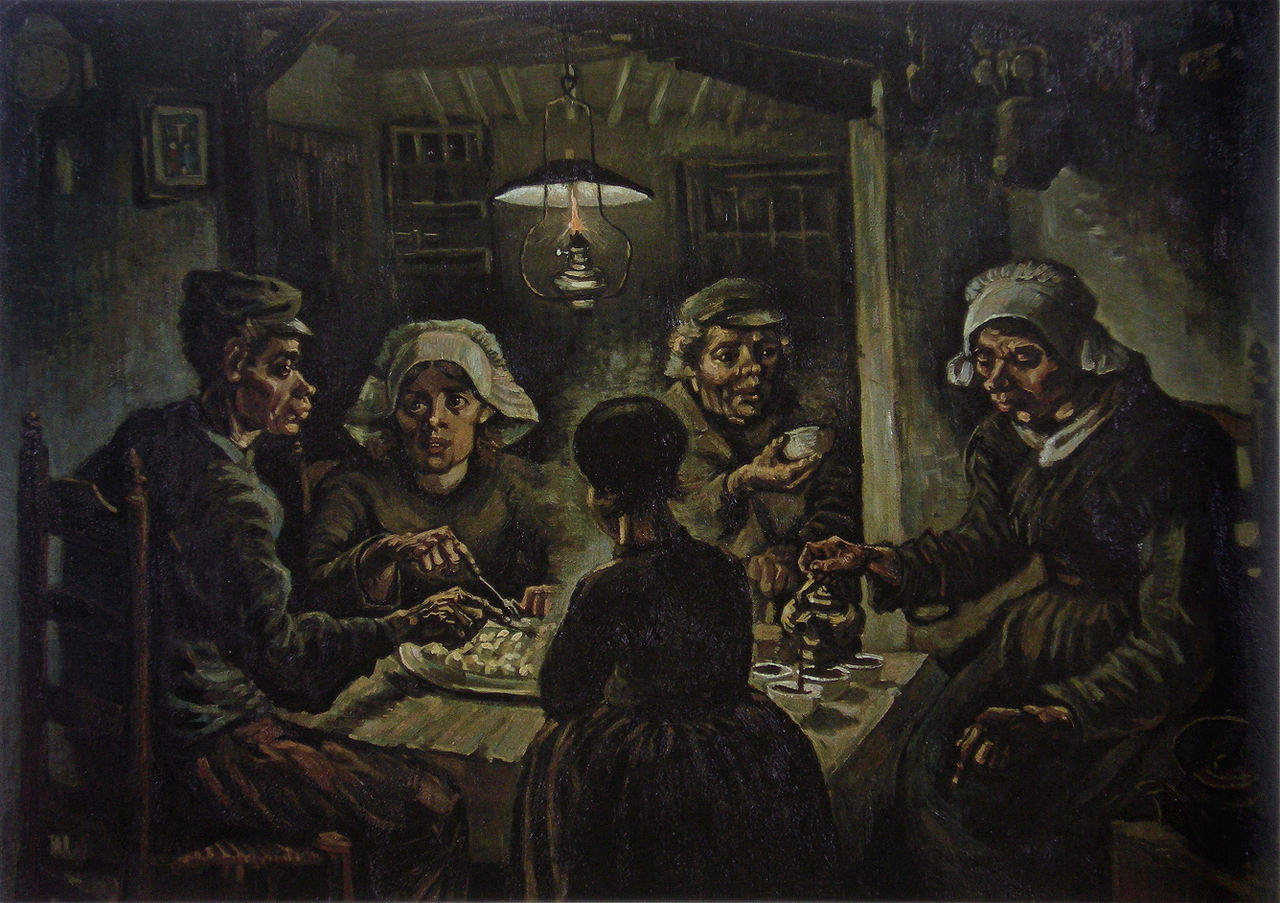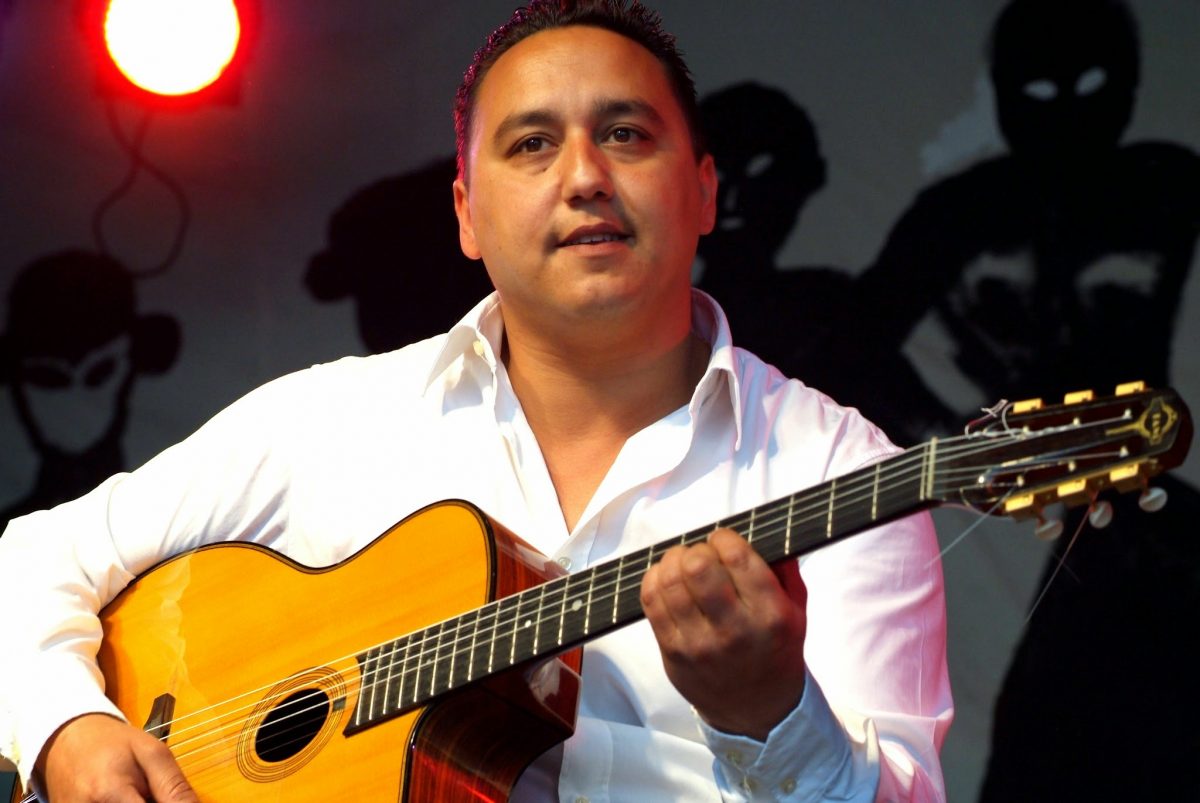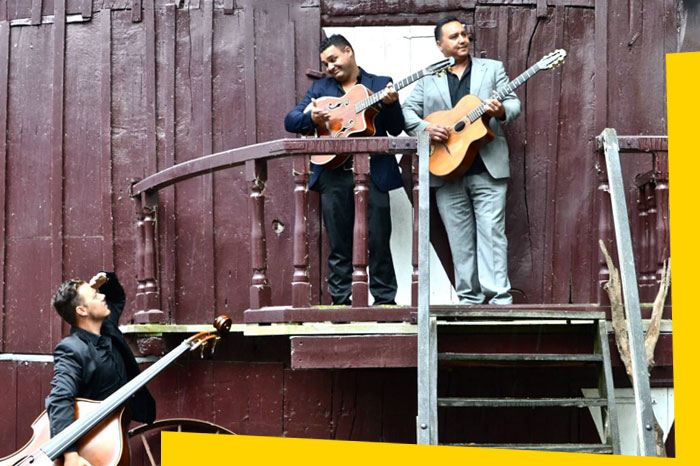Paulus Schafer is one of the most prestigious contemporary Gypsy Jazz musicians.
A truly original Sinti community descendent from the Netherlands, he is the exponent for the Django Reinhardt musical tradition of the XXI century.
It is an honour and a privilege to welcome the Paulus Schafer Trio to promote and stimulate the original European Jazz language in Portugal.
For the first time in our country’s history we have the opportunity to listen to this wonderful art form at Seixal Jazz 2015, moreover through the hands of one the greatest teachers of the genre alive.
1 – What inspired you to make music? Could you tell us something about who influenced you and what was going on around you at the time.
I was born with music; it was inevitable. For me, music is like breathing, you don’t think about it, it just happens.
In our community you just grow up with Gypsy Swing. There is music every day. It is an ongoing process; you constantly try to improve your playing. You listen to Django Reinhardt’s music on LP’s and cassettes, and you practice, practice, practice…
We don’t study at the conservatory. It is taught from father to son, from uncle to nephew. My family is the inspiration. My family is in fact the essence of gypsy swing.
2 – Wasso Grünholz and Stochelo Rosenberg must have been a huge influence. Have they motivated you to practice?
Mainly Wasso Grünholz influenced my musical development. I listened to him by crawling under his caravan, listening to the most beautiful tunes. Then I ran to our own caravan and tried to copy what I heard. Of course I often watched him play and also I asked him many questions.
I didn’t need outside motivation. For my family and I making music is a given. It’s a form of happiness you simply can’t avoid. The most important motivation, for me, was the day Wasso said: “Now I want to hear Paulus!” What he told me was the best thing that ever happened to me. He stimulated me to find my own style.
Stochelo Rosenberg opened the doors to the world with his music, and he showed us that the Dutch Gypsy Jazz style is being appreciated everywhere. That encouraged me to also put myself out there and start my own band.
http://https://www.youtube.com/watch?v=L_gcxusVMOc&feature=youtu.be
3 – What were the biggest challenges in your musical career?
The challenge is just to have your own voice! You can either make it or break it. As I said before, it is a natural process, in which you find your own style, step by step.
Unthinkingly copying other musicians is not my thing. The greatest challenge is to be yourself and develop your own style. Like Wasso challenged me: “Now I want to hear Paulus!”
4 – How much did your playing change throughout the years?
Not so much has changed. It is a natural process, like the lifestyle of our community that develops in a natural way as well.
In our musical style nothing revolutionary has happened. I often wondered though, how would it be if Django were still alive? Of course I do get influenced from outside as well, without being aware of it. It just happens.
5 – Can you describe the Sinti lifestyle? Is it different from the Gadjo (non-tzigane) lifestyle?
Our lifestyle is traditional and strongly family oriented. We take care of each other and of the elderly. We live very socially and not as individualistic as people in a city.
The peace and quiet of our community, my family, my relatives, my wife and kids is important to me. I am always happy to be back home again, where my roots are.
6 – How do you balance work and private life?
I don’t have fixed rehearsal times or moments to relax. It comes and goes. When my nephew, brother or other relative drops by we play. Then new ideas emerge naturally. You can’t force music.
Of course we do rehearse for a CD recording and then we make strict appointments.
Regularly, musicians from all over the world visit our little camp and they love to come play with us. They know everything about theory, but what matters is to do it, and to do it with your heart and your soul!
7 – What do you value the most in music and in musicians?
If the music really moves me, I value the personality of the musician and the way the music is played. Then I build on that, in my mind I start improvising, and developing it further.
8 – You’re the first Gypsy Jazz Sinti musician ever to play in Portugal. How do you feel about that?
I had no idea that I was the first one. It is a real honour to play at the Seixal Festival. It is amazing that I would be the first gypsy musician to play there.
We will play with all our heart, as always, hoping to win the Portuguese people over for our music. If they truly enjoy it, our concert has been a success.
9 – Do you meditate or do something else to focus before a concert?
Mediation is foreign to me. In the band The Five Guitars I work with guitarist Jan Kuiper, who is a yoga teacher. Of course we talk about that.
I find peace in my guitar playing. That makes me come alive and makes me want to give the best of me.
10 – You’re currently working on a new album. Tell us something about it.
It is called “Letter to Van Gogh”. The painter Vincent van Gogh has lived in my village, Nuenen, for a number of years. He was an outsider, and in the time he lived here he made that famous painting, “The Potato Eaters”. It is a dark canvas of very poor farmers, quite depressing. When he moved to France he met other artists and his work becomes an explosion of colour.

Sinti to this day are still outsiders. And cooperating with other musicians certainly has brought more colours to my style. On this CD (all original compositions) I have the privilege to play with outstanding musicians, like Stochelo Rosenberg, Peter Beets, Tcha Limberger, Jan Kuiper and Dominique Paats. This is my musical letter to Van Gogh! I will bring the CD and play a few tunes from it.
11 – What would you like to be acknowledged for? What’s the most important aspect of your life’s journey that you’d like people to remember?
My journey is our journey. The journey of the Sinti: Latcho Drom, a long travel. We just look at today; tomorrow is another day. We’ll see where we will be playing then.
We, all of us, are modest when it comes to thinking about that. What people remember is not us, but our music.
12 – What would you say to Django if you had the chance to meet him? What would be the record, the musician or the song that you would suggest he should listen to?
I would not suggest anything to him. I would play with him and be extremely happy. That would be a dream come true…
(Special thanks to Irene Ypenburg for her translation of Paulus’s words.)




